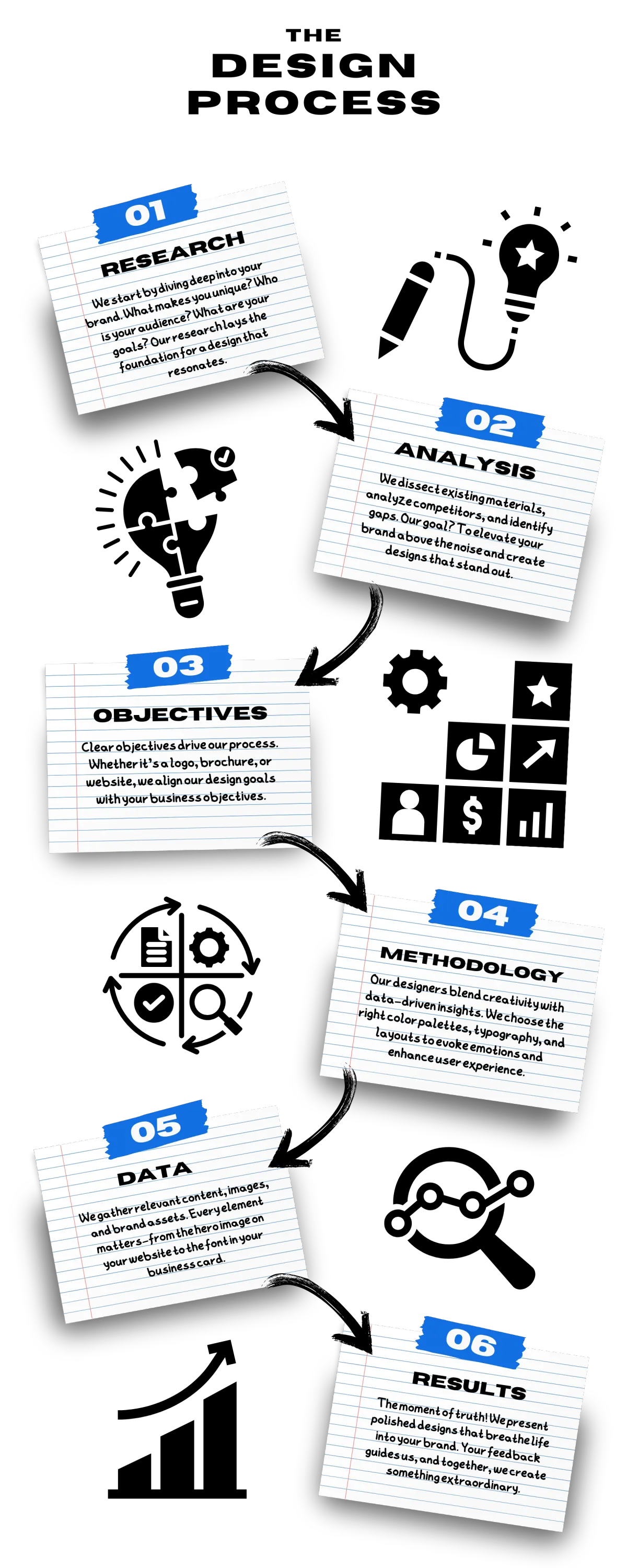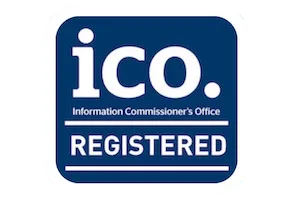CHECK OUR BLOG
FOR INDUSTRY INSIGHTS
& UPDATES
CHECK OUR BLOG FOR INDUSTRY INSIGHTS & UPDATES

How We Help Our Clients Achieve Success with Our Lead Generation and Digital Marketing Services
“Marketing is not the art of finding clever ways to dispose of what you make. It is the art of creating genuine customer value” - Philip Kotler, marketing author and professor
How We Help Our Clients Achieve Success with Our Lead Generation and Digital Marketing Services
At I Need Leads LTD, we are a lead generation and digital marketing agency that offers various services such as appointment setting, AI chatbots, VOIP telephony, and website hosting. Our mission is to help our clients grow their revenue and reach their goals by creating and delivering effective and engaging campaigns for their products or services.
In this article, we will share with you our steps to success for each client, and how we use our services to improve their sales process with CRM, lead generation, sales and marketing, and AI. We will also show you some of the results and testimonials that we have achieved for our clients.

Step 1: Search Engine Optimization
The first step to success for each client is to optimize their web page, local and national listings, and online presence for search engines. This is because when potential customers Google their business, it’s off-putting if they cannot find it. Search engine optimization (SEO) can help our clients rank higher and drive more organic traffic to their website or landing page.
We use various SEO strategies and tactics to improve our clients’ website performance and visibility, such as:
Conducting keyword research to ensure the correct keywords are linking with the URL and search phrases
Optimizing the website content, titles, headings, meta descriptions, and URLs for the most relevant and popular keywords for their niche
Creating and distributing valuable and relevant content, such as blog posts, ebooks, webinars, podcasts, and videos, that can educate, inform, entertain, or persuade their audience and drive them to their website or landing page
Using social media marketing to engage and interact with their audience and share their content, offers, and stories
Building and earning high-quality and relevant backlinks from other authoritative websites and sources
Using PPC (Pay-Per-Click) advertising to target and attract their audience and drive them to their website or landing page
Measuring and analyzing their website performance and traffic using tools such as Google Analytics, Google Search Console, and Google Ads

Step 2: CRM Customization and Automation
The second step to success for each client is to build a custom CRM system that suits their business needs and automates their sales tasks and workflows. CRM (Customer Relationship Management) is a software system that helps our clients manage and optimize their relationships with their leads and customers.
We use various CRM features and benefits to improve our clients’ sales process, such as:
Storing and organizing all their lead and customer data in one central place, such as contact information, interactions, preferences, and purchase history
Integrating their CRM system with their other sales and marketing tools and platforms, such as email, social media, web, and phone
Automating and simplifying their sales tasks and workflows, such as lead capture, assignment, follow-up, and tracking
Providing them with real-time insights and analytics on their sales performance and activities, such as pipeline, conversion, revenue, and ROI
Enabling them to personalize and customize their communication and offers to their leads and customers based on their data and behavior
We use various CRM features using our adaptable CRM and platforms to create and manage our clients’ CRM system.

The third step to success for each client is to build eye-catching and convertible landing pages for their products or services. A landing page is a web page that is designed to capture the attention and interest of the visitors and persuade them to take a specific action, such as signing up, downloading, contacting, or buying.
We use various landing page design and optimization principles and techniques to improve our clients’ conversion rate, such as:
Creating a clear and compelling headline that summarizes the value proposition and unique selling point of the product or service
Using a stunning and relevant visual element, such as an image, video, or animation, that supports the headline and message
Writing a clear and concise copy that communicates the benefits and features of the product or service, and addresses the pain points and needs of the audience
Adding social proof, such as testimonials, reviews, ratings, or logos, that demonstrate the credibility and trustworthiness of the product or service
Using a strong and clear call to action, such as a button, form, or link, that tells the visitors what to do next and motivates them to act
Testing and experimenting with different elements, such as colors, fonts, layouts, or images, to see what works best for the audience and the product or service
We use various landing page software and platforms to create and optimize our clients’ landing pages, such as:
Unbounce: Unbounce is a landing page builder that allows us to create and customize landing pages without coding, using drag-and-drop features, templates, and integrations
Leadpages: Leadpages is a landing page software that helps us create and publish landing pages quickly and easily, using pre-designed templates, widgets, and analytics
Instapage: Instapage is a landing page platform that enables us to create and optimize landing pages for maximum conversions, using features such as A/B testing, heatmaps, and personalization

Step 4: Competitor Research and Analysis
The fourth step to success for each client is to research and analyze their competitors and their marketing and advertising strategies. This is because we need to know what our clients’ competitors are doing, what their strengths and weaknesses are, and how we can differentiate and position our clients’ products or services in the market.
We use various competitor research and analysis methods and tools to gain insights and intelligence on our clients’ competitors, such as:
Conducting a SWOT analysis to identify the strengths, weaknesses, opportunities, and threats of our clients’ competitors
Using tools such as SEMrush, SpyFu, or AdEspresso to research and compare our clients’ competitors’ ads, keywords, landing pages, and performance
Using tools such as SimilarWeb, Alexa, or BuzzSumo to research and compare our clients’ competitors’ website traffic, audience, content, and social media presence
Using tools such as SurveyMonkey, Typeform, or Google Forms to conduct surveys and interviews with our clients’ competitors’ customers and prospects to understand their preferences, satisfaction, and feedback

Step 5: Creative and Copywriting
The fifth step to success for each client is to design creatives and write copy for their ads and landing pages. Creatives are the visual elements of the ads, such as images, videos, graphics, or animations. Copy is the text that accompanies the creatives, such as headlines, slogans, captions, or calls to action.
We use various creative and copywriting principles and techniques to improve our clients’ ads and landing pages, such as:
Using the AIDA model (Attention, Interest, Desire, Action) to structure the copy and guide the audience through the stages of the buyer’s journey
Using the 4 Ps formula (Promise, Picture, Proof, Push) to write persuasive and compelling copy that captures the audience’s attention, paints a vivid picture, provides proof, and pushes for action
Using the 4 Cs formula (Clear, Concise, Compelling, Credible) to write clear and concise copy that communicates the value proposition and unique selling point, compelling and emotional copy that evokes the audience’s feelings and desires, and credible and trustworthy copy that backs up the claims and promises
Using tools such as Grammarly, Hemingway, or CoSchedule to write and edit the copy for grammar, readability, and headline quality
Using tools such as Creatopy, Canva, or Lumen5 to create and optimize the creatives for design, size, and format
Step 6: Tracking and Analytics

The sixth step to success for each client is to connect the tracking and analytics tools from Google Ads, Google Analytics, and Facebook Pixel to their ads and landing pages. These tools help us measure and monitor the performance and results of our clients’ campaigns, such as impressions, clicks, conversions, or ROI.
We use various tracking and analytics features and benefits to improve our clients’ campaigns, such as:
Setting up conversion tracking to track and measure the actions that the visitors take on the landing pages, such as signing up, downloading, contacting, or buying
Setting up remarketing to target and reach the visitors who have visited the landing pages but have not converted, and show them relevant and personalized ads
Setting up attribution to understand and assign credit to the different touchpoints and channels that have influenced the visitors’ conversion journey
Using tools such as Google Data Studio, Google Optimize, or Facebook Analytics to create and customize dashboards and reports that display and analyze the campaign data and insights

Step 7: Testing and Optimization
The seventh step to success for each client is to test and optimize their campaigns based on the data and insights from the tracking and analytics tools. We test 3 to 5 campaigns on a low budget, increasing the budget on successful campaigns and landing pages, and optimizing as we go.
We use various testing and optimization methods and tools to improve our clients’ campaigns, such as:
Conducting A/B testing to compare and evaluate the performance and results of two different versions of the ads or landing pages, such as changing the headline, the image, the copy, or the call to action
Using tools such as Google Optimize, Optimizely, or VWO to create and manage A/B testing experiments and analyze the results
Conducting multivariate testing to compare and evaluate the performance and results of multiple combinations of different elements of the ads or landing pages, such as changing the color, the font, the layout, or the design
Using tools such as Google Optimize, Optimizely, or VWO to create and manage multivariate testing experiments and analyze the results
Conducting user testing to collect and understand the feedback and behavior of the users who interact with the ads or landing pages, such as observing their actions, reactions, comments, or suggestions
Using tools such as UserTesting, Hotjar, or Crazy Egg to create and manage user testing sessions and analyze the results
Making data-driven decisions to adjust and improve the ads or landing pages based on the testing and optimization results, such as increasing or decreasing the budget, changing or removing the elements, or scaling or pausing the campaigns
Using tools such as Google Data Studio, Google Analytics, or Facebook Analytics to create and customize dashboards and reports that display and analyze the campaign data and insights
Step 8: Reporting and Evaluation The eighth step to success for each client is to report and evaluate their campaigns based on the data and insights from the testing and optimization tools. We report the results and outcomes of our clients’ campaigns to them on a regular basis, such as weekly, monthly, or quarterly, depending on their preferences and needs.
We use various reporting and evaluation methods and tools to communicate and improve our clients’ campaigns, such as:
Creating and presenting clear and concise reports that summarize the key metrics and achievements of our clients’ campaigns, such as impressions, clicks, conversions, ROI, etc.
Using tools such as Google Data Studio, PowerPoint, or Venngage to create and customize visual and interactive reports that display and analyze the campaign data and insights
Providing feedback and recommendations on how to further improve and optimize our clients’ campaigns, such as adding new features, testing new channels, or scaling up the budget
Celebrating and acknowledging the successes and learnings of our clients’ campaigns, and thanking them for their trust and collaboration
The ninth and final step to success for each client is to retain and nurture their existing customers and turn them into loyal and repeat buyers. We help our clients build long-term relationships with their customers by providing them with value-added services and support, such as:
Sending personalized and timely emails, messages, or notifications to their customers, such as thank you notes, feedback requests, satisfaction surveys, product updates, special offers, etc.
Using tools such as Mailchimp, HubSpot, or Intercom to create and manage email marketing and customer communication campaigns
Providing excellent customer service and support to their customers, such as answering their questions, resolving their issues, or offering them advice
Using our in house tools manage customer service and support tickets
Rewarding and incentivizing their customers for their loyalty and referrals, such as offering them discounts, coupons, freebies, or loyalty programs
Using our in house tools at I Need Leads LTD to create and manage referral and loyalty programs
By following these nine steps, and the tools provided by I Need Leads LTD we help our clients achieve success with their lead generation and digital marketing campaigns. We hope this article has given you some insights and tips on how to create and manage your own campaigns, or how to work with us if you need our services. If you have any questions or comments, please feel free to contact us at I Need Leads LTD. We would love to hear from you and help you grow your business. 😊 Simon - I Need Leads LTD https://www.theineedgroup.co.uk
NAVIGATION
SOLUTIONS
RESOURCES
LEGAL
COMPANY
GET IN TOUCH
128 City Road, London, EC1V 2NX
Company number: 14241556

© Copyright 2023. THE I NEED GROUP.
All Rights Reserved.
NAVIGATION
SOLUTIONS
RESOURCES
LEGAL
COMPANY
GET IN TOUCH
Company number: 14241556
128 City Road, London, EC1V 2NX

© Copyright 2023. THE I NEED GROUP. All Rights Reserved.

